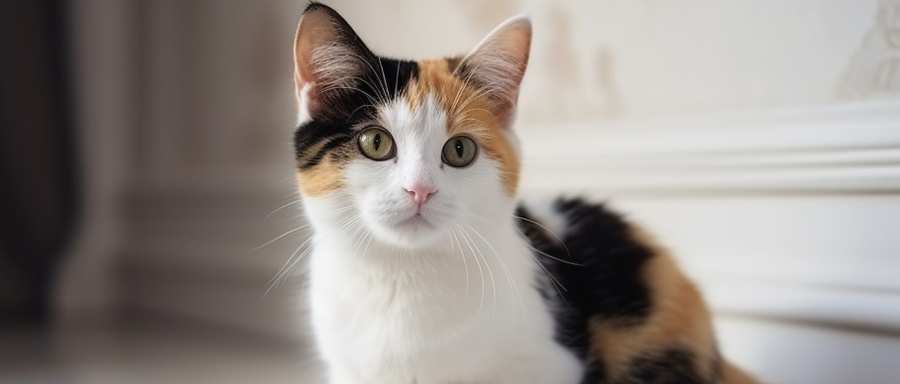Peppermint plants are generally safe for cats, but ingestion may cause mild gastrointestinal upset.
The Basics of Peppermint Plants
Peppermint, known scientifically as Mentha piperita, is a hybrid plant that comes from the crossing of watermint and spearmint. It’s widely recognized for its aromatic leaves and distinct flavor, often used in culinary dishes, teas, and essential oils. The plant thrives in moist environments and can be grown indoors or outdoors, making it a popular choice for home gardens. The vibrant green leaves and purple flowers not only add beauty to a garden but also attract various beneficial insects.
Understanding the characteristics of peppermint plants is crucial for any cat owner. These plants are perennial, meaning they can live for several years, and they can spread rapidly if not contained. This rapid growth can lead to an abundance of leaves, which might tempt curious cats. While the scent of peppermint is refreshing and invigorating for humans, it’s essential to consider how it affects our feline friends.
What Makes Peppermint Appealing?
The appeal of peppermint lies not only in its culinary uses but also in its aromatic properties. Many people enjoy the invigorating scent of peppermint as it’s often associated with cleanliness and freshness. In addition to its pleasant aroma, peppermint has been used in traditional medicine for its potential health benefits, including digestive support and relief from headaches.
Cats are known for their inquisitive nature; they often explore their surroundings by sniffing or tasting plants. This curiosity can lead them to peppermint plants. However, understanding how these plants interact with feline physiology is vital for ensuring their safety.
Are Peppermint Plants Toxic to Cats?
When evaluating whether peppermint plants are safe for cats, it’s essential to consider toxicity levels. According to the ASPCA (American Society for the Prevention of Cruelty to Animals), peppermint is classified as non-toxic to cats. This means that while ingestion isn’t recommended as a regular practice, a small amount will likely not cause severe harm.
However, just because a plant is non-toxic doesn’t mean it’s entirely safe. Cats have sensitive digestive systems that can react negatively even to non-toxic substances. If a cat consumes too much peppermint—whether through chewing on leaves or ingesting essential oils—it may experience gastrointestinal upset, including symptoms like vomiting or diarrhea.
Essential Oils: A Different Story
While the leaves of peppermint are generally safe in small quantities, peppermint essential oil presents a different scenario altogether. Essential oils are highly concentrated extracts from plants that may contain compounds harmful to pets. Ingesting or even inhaling concentrated essential oils can lead to serious health issues in cats.
Cats lack certain liver enzymes necessary to metabolize many compounds found in essential oils effectively. This inability can result in toxic buildup within their systems when exposed to high concentrations of these substances. Symptoms such as drooling, tremors, difficulty breathing, or lethargy could occur if a cat comes into contact with or ingests peppermint oil.
Recognizing Symptoms of Ingestion
Being aware of the signs that indicate your cat may have ingested too much peppermint is crucial. If your feline friend shows any unusual behavior after coming into contact with peppermint—whether through chewing on leaves or exposure to oil—monitor them closely.
Common symptoms include:
- Vomiting
- Diarrhea
- Lethargy
- Loss of appetite
- Abdominal discomfort
If any of these symptoms arise after your cat has interacted with peppermint plants or products containing peppermint oil, seeking veterinary advice promptly is advisable.
How to Safely Introduce Peppermint Plants
For those who wish to grow peppermint while having cats at home, there are ways to do this safely. Growing the plant indoors allows better control over your pet’s access while still enjoying its benefits. Placing pots on high shelves or using hanging planters can keep them out of reach from curious paws.
If you’re keen on letting your cat explore new tastes safely, consider offering fresh herbs that are known to be safe for felines instead—such as catnip or wheatgrass—which provide stimulation without the risks associated with peppermint.
Creating a Cat-Friendly Garden
Designing a garden that accommodates both plants and pets requires careful planning. Here’s how you can create a safe environment:
1. Choose Non-Toxic Plants: Research which herbs and flowers are safe for cats before planting.
2. Containment: Use raised beds or pots that are elevated off the ground.
3. Create Barriers: Consider using fencing around garden areas where you grow potentially harmful plants.
4. Educate Yourself: Familiarize yourself with common houseplants and their safety levels concerning pets.
By taking these precautions, it’s possible to enjoy gardening without compromising your pet’s health.
Alternatives to Peppermint
If you’re looking for alternatives that provide similar benefits without the risks associated with peppermint plants, consider these options:
| Plant | Benefits | Safety Level |
|---|---|---|
| Catnip | Stimulates playfulness | Non-toxic |
| Basil | Culinary use; may repel pests | Non-toxic |
| Parsley | Nutritional benefits | Non-toxic |
| Thyme | Culinary use; antibacterial | Non-toxic |
These alternatives not only enrich your culinary endeavors but also provide safe options for your feline companions.
Conclusion – Are Peppermint Plants Safe For Cats?
In summary, while peppermint plants are generally considered non-toxic to cats, caution should always be exercised when introducing any new plant into your home environment. Monitoring your cat’s behavior around these plants ensures their safety while allowing you to enjoy the many benefits they offer.
It’s important always to err on the side of caution when it comes to our furry friends’ health and well-being; understanding what constitutes safe versus unsafe interactions helps maintain peace at home while nurturing our love for gardening and cooking alike!

